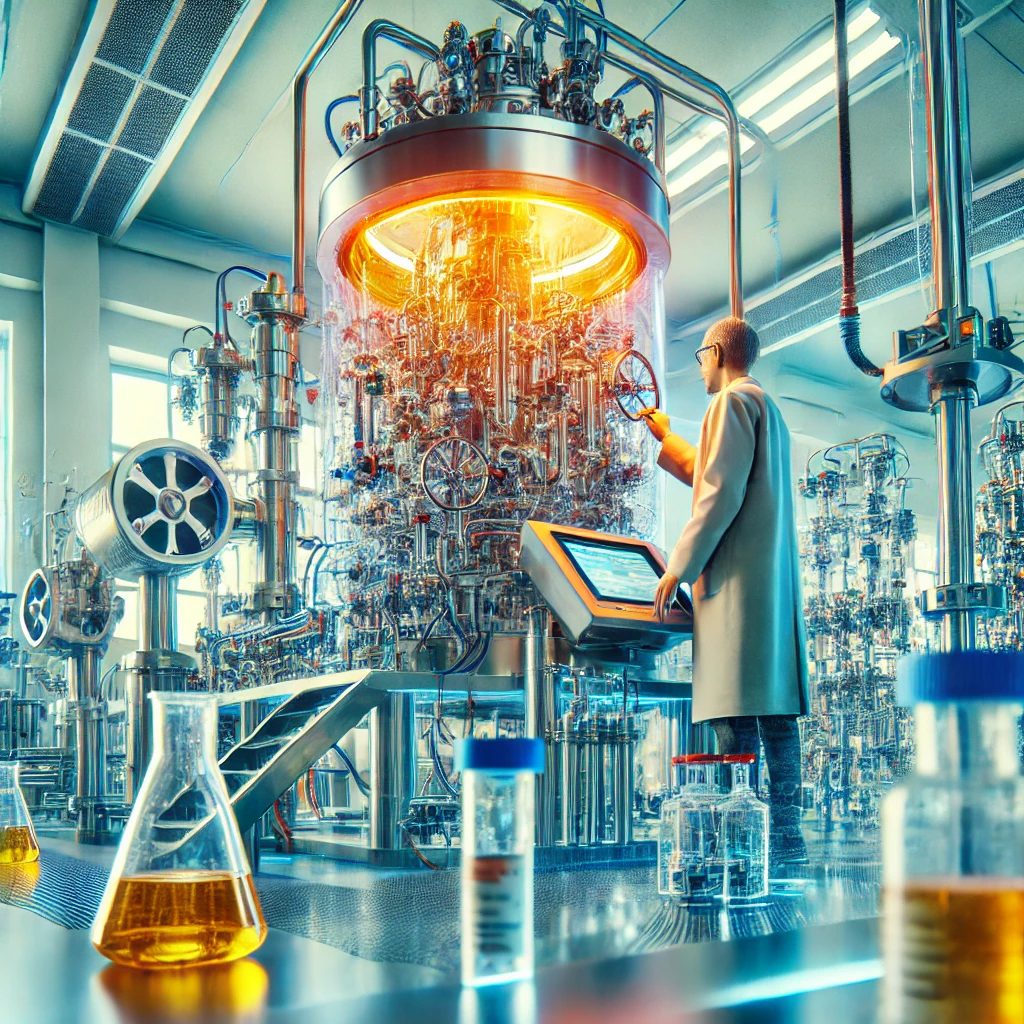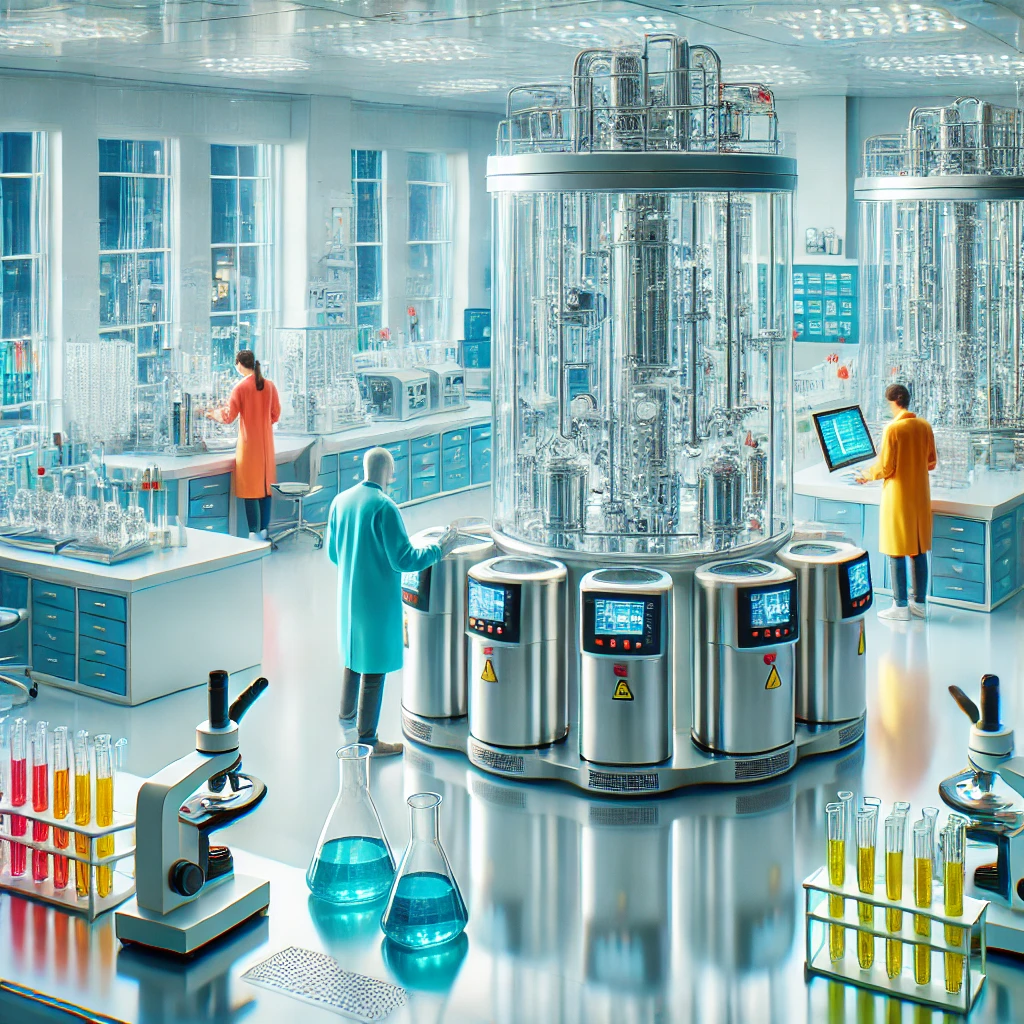What is Precision Fermentation?
Precision fermentation is a revolutionary biotechnology process that enables the production of specific proteins, enzymes, and other complex molecules by using genetically modified microorganisms. This cutting-edge technology holds the potential to transform the food industry by offering sustainable and scalable alternatives to traditional animal-based products.
The Science Behind Precision Fermentation
At its core, precision fermentation involves the use of microorganisms such as yeast, bacteria, or fungi, which are engineered to produce desired compounds. These microorganisms are provided with the necessary nutrients and conditions to thrive, and they follow a specific metabolic pathway to synthesize the target molecules. Once the fermentation process is complete, the product is purified and can be used in various applications, from food and beverages to pharmaceuticals.

Benefits of Precision Fermentation
Precision fermentation offers several significant benefits that make it a promising solution for sustainable food production:
Environmental Impact
One of the most compelling advantages of precision fermentation is its potential to reduce the environmental footprint of food production. Traditional livestock farming is associated with high greenhouse gas emissions, deforestation, and significant water usage. In contrast, precision fermentation requires fewer resources and produces minimal waste, making it a much more eco-friendly option.
Food Security and Sustainability
Precision fermentation can play a crucial role in addressing global food security challenges. By producing essential nutrients and proteins without relying on conventional agriculture, this technology can help ensure a stable and resilient food supply. Additionally, precision fermentation can be conducted in controlled environments, making it less susceptible to climate change and other external factors that impact traditional farming.
Health and Nutrition
Products derived from precision fermentation can be tailored to meet specific dietary needs and preferences. For instance, precision fermentation can be used to create lactose-free dairy proteins, hypoallergenic foods, and fortified products with enhanced nutritional profiles. This level of customization can help address various health concerns and improve overall public health outcomes.
Applications of Precision Fermentation in the Food Industry
Dairy Alternatives
One of the most exciting applications of precision fermentation is the production of dairy alternatives. Companies are now able to produce milk proteins such as casein and whey without the need for cows. These proteins can be used to create plant-based cheeses, yogurts, and other dairy products that have the same taste and texture as their animal-derived counterparts.
Meat Substitutes
Precision fermentation is also being used to develop meat substitutes that mimic the flavor, texture, and nutritional content of traditional meat. By producing specific proteins and heme molecules, these alternatives can offer a more sustainable and ethical option for meat lovers without compromising on quality.
Flavor Enhancers and Additives
Another application of precision fermentation is the production of natural flavor enhancers and additives. For example, companies can produce vanillin, the primary component of vanilla flavor, through fermentation processes, reducing the reliance on synthetic or scarce natural sources.
Challenges and Considerations
While precision fermentation holds immense promise, there are several challenges and considerations that need to be addressed for its widespread adoption.
Regulatory Landscape
The regulatory framework for precision fermentation products is still evolving. Ensuring that these products are safe for consumption and meet all regulatory requirements is crucial for gaining consumer trust and market acceptance.
Cost and Scalability
Although the cost of precision fermentation has been decreasing, it is still a significant factor in determining its feasibility for large-scale production. Continued advancements in technology and infrastructure are necessary to make precision fermentation more cost-effective and scalable.
Consumer Acceptance
Consumer perception and acceptance of precision fermentation products are critical for their success. Transparent communication about the benefits and safety of these products can help build consumer confidence and drive adoption.
The Future of Precision Fermentation
Innovation and Collaboration
The future of precision fermentation will likely be driven by continued innovation and collaboration among scientists, industry leaders, and policymakers. Investment in research and development, as well as partnerships between the public and private sectors, will be key to unlocking the full potential of this technology.
Integration with Traditional Agriculture
Rather than completely replacing traditional agriculture, precision fermentation can complement existing food production systems. By integrating precision fermentation into the agricultural landscape, it is possible to create a more diverse and resilient food supply that leverages the strengths of both methods.
Expansion Beyond Food
While the primary focus of precision fermentation has been on food production, its applications extend beyond the food industry. Precision fermentation can be used to produce biofuels, biodegradable materials, and pharmaceuticals, offering sustainable solutions across various sectors.
Conclusion
Precision fermentation represents a groundbreaking advancement in biotechnology with the potential to revolutionize the food industry and beyond. By providing sustainable, scalable, and customizable alternatives to traditional animal-based products, precision fermentation can address some of the most pressing challenges related to food security, environmental sustainability, and public health. As this technology continues to evolve and mature, it will undoubtedly play a pivotal role in shaping a more sustainable and resilient future for global food production.

